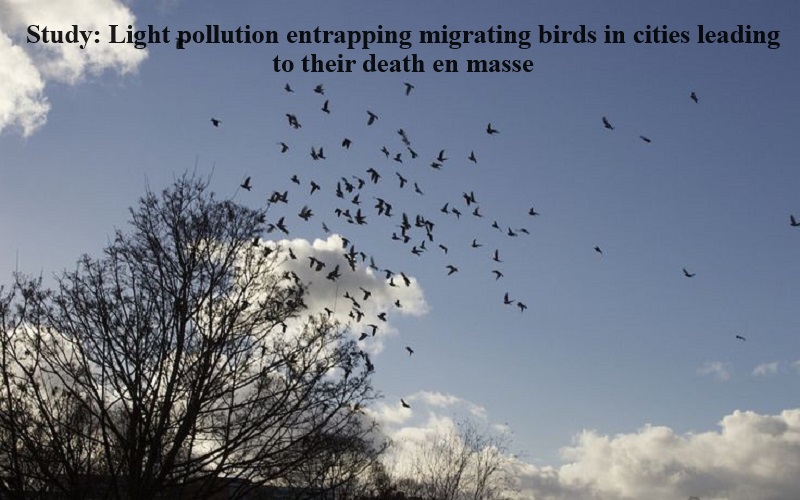
A recent study has brought attention to the escalating threat posed by light pollution to migrating birds, leading to widespread fatalities across the globe.
Media reports highlighted an incident in Chicago on October 4 and 5, where approximately 1,000 migrating birds perished due to collisions with illuminated buildings, underscoring the growing inhospitality of ‘stopover’ cities for these birds.
Published in Nature Communications, the study emphasizes the importance of finding suitable stopovers for the success of mass bird migration, likening it to a lengthy road journey that necessitates refueling and resting along the way.
To discern bird stopover density, scientists utilized weather radar data, revealing that birds were more inclined to land in areas illuminated by artificial lights. The study integrated over 10 million radar observations with landscape information, identifying light pollution as the second most influential factor among 49 predictors of stopover density.
Lead author Kyle Horton, an assistant professor at Colorado State University, described city lights as an ecological trap, luring birds into unfavorable conditions marked by collisions, diminished habitat, scarce food, and increased human and feline presence.
The study explores potential solutions, with the scientific community divided between implementing significant urban changes for bird-friendly environments and initiating targeted light-out campaigns to prevent birds from entering cities.
Horton emphasized the often overlooked aspect of light as a pollutant, asserting that it meets all the criteria of pollution. Furthermore, light pollution doesn’t solely impact birds but also poses health risks to humans by disrupting circadian rhythms, potentially leading to issues such as depression, insomnia, cardiovascular disease, and cancer.
Horton proposes a straightforward remedy to the crisis, stating that turning off all lights immediately would prevent bird collisions. The impact, he notes, would be immediate and beneficial for both birds and humans.

Post Your Comments